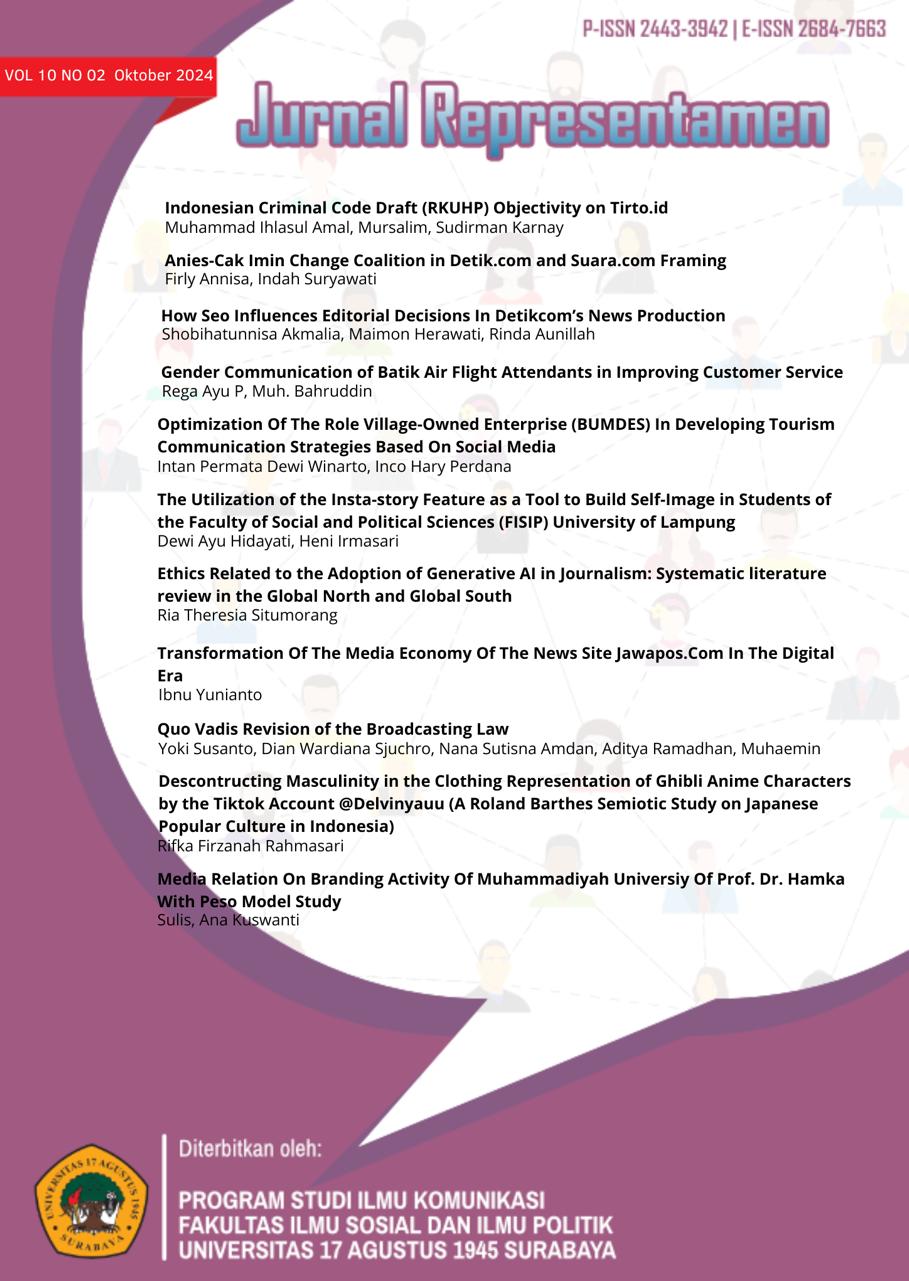Optimization Of The Role Of Village-Owned Enterprise (BUMDES) In Developing Tourism Communication Strategies Based On Social Media
Case Study on the Social Media Strategy of Tumpeng Menoreh Tourist Destination
DOI:
https://doi.org/10.30996/representamen.v10i02.11641Abstract
This research explores the potential of Village-Owned Enterprises (BUMDes) in developing tourism communication strategies, with a case study on the Tumpeng Menoreh tourist destination in Kulon Progo Regency. It employs a post-positivist approach with qualitative methodology, involving semi-structured interviews, social media platform observations, and document analysis. Rhetorical communication strategies and SWOT analysis are used to evaluate the effectiveness of social media in promoting tourism. The findings indicate that BUMDes has leveraged Instagram to enhance the visibility and accessibility of Tumpeng Menoreh through engaging visual content and narratives based on local culture. This strategy has successfully attracted visitors and empowered the local community, although challenges related to accessibility and reliance on influencers remain. The study concludes by emphasizing the importance of more structured strategic planning and diversification of social media platforms to achieve sustainable tourism.
Keywords: BUMDes, tourism communication, social media, Tumpeng Menoreh, Instagram
Downloads
Downloads
Published
Issue
Section
License
Authors whose manuscript is published will approve the following provisions:
The right to publication of all journal material published on the jurnal representamen website is held by the editorial board with the author's knowledge (moral rights remain the property of the author).
The formal legal provisions for access to digital articles of this electronic journal are subject to the terms of the Creative Commons Attribution-ShareAlike (CC BY-SA) license, which means Jurnal Representamen reserves the right to store, modify the format, administer in database, maintain and publish articles without requesting permission from the Author as long as it keeps the Author's name as the owner of Copyright.
Printed and electronic published manuscripts are open access for educational, research and library purposes. In addition to these objectives, the editorial board shall not be liable for violations of copyright law.











